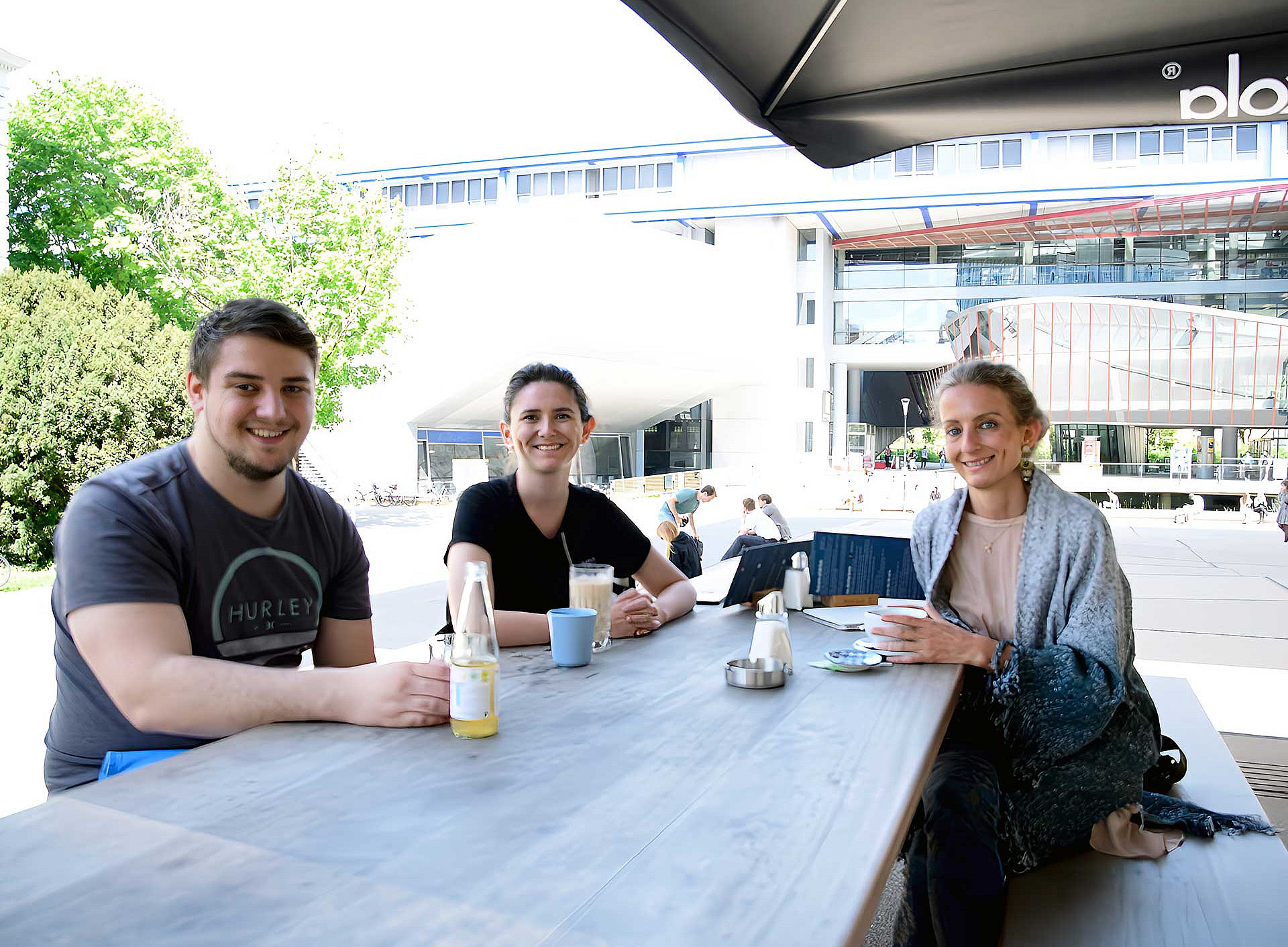At the University of Graz, members of all areas experience how democracy works in everyday research, study and work life. The legally guaranteed independence of research and self-administration make universities independent democratic units in which students and teaching staff have a say.
The most important body is the 26-member Senate. "We are something like the National Council of the university," says Senate Chair Tina Ehrke-Rabel. And in this function, they have a direct influence on the decisions of the Rectorate.
The Senate is made up of representatives from academia (senior and intermediate faculty), general staff and the Austrian Students' Union (ÖH), which, as an elected body of students, is another pillar of democracy at universities. "Much of what is discussed in the Senate has to do with studies," says Maja Höggerl, deputy ÖH chairwoman and member of the Senate. "Student input is particularly important here. At the end of the day, we directly experience everyday study life, which is why we are best placed to give feedback."
This participation is particularly important in the curriculum commissions, says ÖH Chair Stefan Zeiringer. The principle of democracy is also upheld here. A third of the members are students. "They know the current problems with the curriculum best and are actively committed to solving them." For Höggerl, this type of co-determination is an important motivation. "It's a great feeling to know that you've been able to contribute to this curriculum and perhaps ensure that one or two outdated courses no longer take place."
For Senate Chair Ehrke-Rabel, the curriculum committees are a central component of a university. "We exist primarily because we have students. We are not just a research institution, but also a teaching and educational institution." Criticism and suggestions from students are therefore particularly valuable. "After all, the quality of teaching and the curriculum has a direct influence on students' career progression."
This is also important for the strategic direction of the university. "We want to be an attractive place for young people where they feel they can help shape the future," says Ehrke-Rabel. For the student representatives, the topic of sustainability is a priority, says Zeiringer: "As a university, we want to be a pioneer in society." At the same time, the group of students is becoming increasingly diverse, says Höggerl. "The university has to ask itself current questions. How do you deal with the many different views and different backgrounds in the student body?"
Voluntary work takes up a lot of time, but it also brings a lot of life experience, says ÖH Chair Zeiringer. "Even if you don't complete major projects during your own term of office, your successors take over. After 20 years, you can see that the university is in a better position than before and that you were part of it. That's something to be proud of."
But it doesn't always have to be the big hit. "Even small improvements that benefit a few students can make a big difference for them," explains Höggerl. "That's a good thing." For Senate Chairwoman Ehrke-Rabel, self-administration is a privilege. "We can shape things. We should take that seriously and enjoy it."
